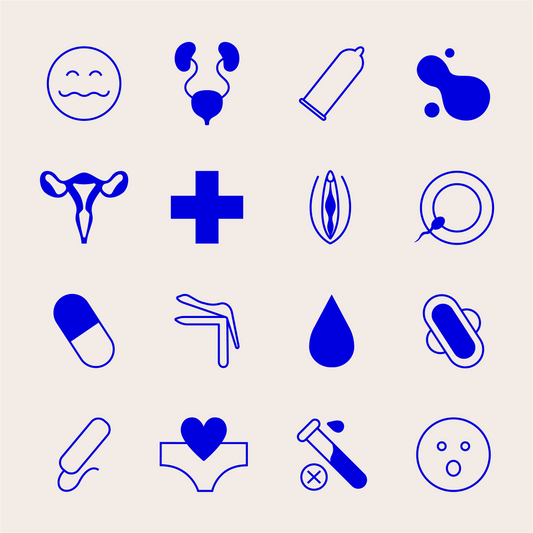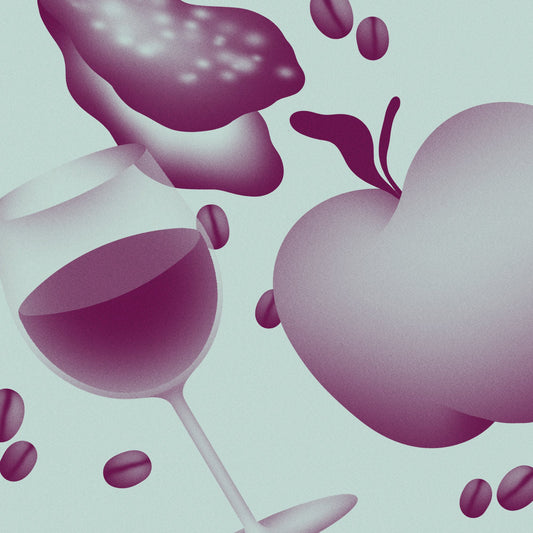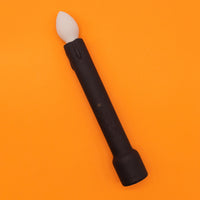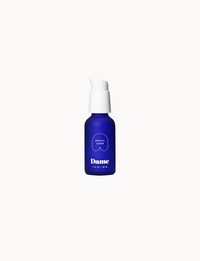Alexandra Fine, Credentialed Sexologist, M. Psych | Written by Dame
Why Masturbation Was Once Considered “Unhealthy” | “Normalization” of Masturbation | Health Benefits of Masturbation
Exercise is healthy. A diet that’s low in carbs and high in natural, organic foods is healthy. Getting enough sleep, staying hydrated, avoiding risky behaviors – all healthy.
But why would you use the word “healthy” to describe masturbation? Self-pleasuring definitely provides sexual enjoyment and release, and in contrast to the myths that were promulgated during the 18th and 19th centuries, it certainly isn’t bad for you.
Or, as Tina Turner might ask: what’s health got to do with it?
As it turns out, quite a bit.
You don’t have to dig too deeply into the subject to come up with a couple of reasons why masturbation is good for your sexual health. It relieves sexual tension, and it allows you to climax without risking STDs or pregnancy.
Those fall more into the categories of pleasure and safety, though. The bigger question is whether you’re actually improving your health when you masturbate.
The answer is an unequivocal “yes.” Masturbation really is good for you.
Let’s discuss the details – and just as importantly, why it took so long to discover the many benefits of masturbation.
Why Masturbation Was Once Considered “Unhealthy”
For centuries, the Western world heard little about masturbation other than dire warnings about its supposed perils and dangerous consequences. It turns out that misinformation was largely based on religious doctrine.
To be clear, though, not all societies have historically condemned masturbation.
In ancient Egypt, for example, the widely-believed story of creation told of how the world’s first god fathered the gods who followed him by masturbating. Unconfirmed legends describe how each year, the sitting Egyptian Pharaoh would recreate that story by masturbating into the Nile River, and another Egyptian legend tells of Cleopatra using a vibrator created from bees.
Ancient Greek art and literature commonly depicted or described masturbation; the playwright Aristophanes’ references to self-satisfaction were particularly noteworthy. The practice was celebrated long before those times, however; prehistoric cave paintings depicting masturbation have been found not only in the Middle East, but in regions as far distant as Europe and India.
However, the emergence of Judeo-Christian religions created a very different environment in the “developed” world.
It all stems from a somewhat minor passage in the Book of Genesis which doesn’t even refer specifically to masturbation. In that story, Judah ordered one of his sons, Onan, to father a child with his brother’s widow. But Onan was concerned that giving the widow a child would limit his own inheritance, so he pulled out and prematurely ejaculated on the ground – after which God struck him down.
The Biblical story explains that Onan was killed because he “spilled his seed on the ground.” And even though the incident didn’t involve masturbation, it was interpreted by most mainstream religions as prohibiting any “waste” of semen, whether it was through self-pleasure or contraception. In fact, the term “onanism” was subsequently used to describe both masturbation and coitus interruptus.
For several millennia, until the 19th or 20th century, it was common for religious prohibitions to serve as the foundation for societal laws and traditions. Often, alternative rationales were devised and promulgated to justify enforcement of those laws and traditions.
That was certainly the story behind societal norms condemning masturbation, particularly during the time of the Industrial Revolution.
Philosophers like Kant and Rousseau tied themselves into rhetorical knots condemning the act of self-gratification. Respected authority figures like Freud, physician/author Robert James and psychiatrist Jean-Etienne Esquirol warned of “neurasthenia” (an emotional disturbance), “hideous consequences” and “insanity” which were allegedly linked to masturbation; tellingly, words like “sin” often appeared in those warnings.
Other supposed experts warned of consequences like tuberculosis, epilepsy, acne, back pain, infertility and “deviant behaviors” like homosexuality. And shockingly, 19th century medical “treatments” aimed at preventing masturbation went as far as removal of foreskins and clitorises.
The “Normalization” of Masturbation
In the early 1900s Freud began to walk back his views of masturbation, adopting a more nuanced view of its normalcy. That was the first sign of an eventual sea change in societal views of masturbation, represented more broadly in the United States by the publication of the Kinsey Reports and the work of Masters and Johnson.
Biologist and sex educator Alfred Kinsey’s landmark studies in the mid-20th century discovered that 92% of those identifying as male, and 62% of those identifying as female, had masturbated during their lifetimes. And sex therapists/researchers William Masters and Virginia Johnson, in their landmark 1966 Human Sexual Response, confirmed the widespread prevalence of masturbation, as well as its importance in “female sexuality.”
Perhaps most importantly, numerous experts firmly established that masturbation isn’t “unhealthy” and doesn’t have “hideous consequences.”
Since that time, society has generally accepted the reality that masturbation is a common, natural element of human (and animal) sex life, and attention has turned to actual scientific studies investigating the effects – and potential benefits – of self-gratification.
(The only notable holdouts remain religions like Roman Catholicism, some evangelical Christian denominations, and Islam; most other religions have long since reinterpreted their original prohibitions on “spilling seed on the ground.”)
Now that we’re well into the era of masturbation research, let’s find out what has been learned.
The Health Benefits of Masturbation
With so many possible benefits of masturbation to list, the best way to sort them all out is to go by category.
Physical Benefits of Masturbation
Heart Health
We’ll start with one of the most surprising effects of masturbation: it can be heart-healthy.
Blood pressure and heart rate usually increase slightly during arousal and increase strongly just before and during orgasm, whether it’s in the midst of penetrative sex or masturbation. Those are generally the same positive effects gained by “mild to moderate” cardiovascular exercise, according to the American Heart Association. And studies published in the American Journal of Cardiology report that people who orgasm twice a week or more are nearly 50% less likely to suffer heart attacks or strokes.
Weight Management
It goes without saying that if masturbation produces the same general effects as mild-to-moderate exercise, it might also help those looking to keep their weight under control. There are also studies showing that satisfying yourself (or having sex) a few times a week may also help prevent the development of type 2 diabetes. No one is saying that you’ll drop that spare tire you’ve been carrying around if you pleasure yourself a lot, of course, but every little bit helps – and feels good, too.
Immunity
Here’s another surprising benefit: masturbation can help boost the body’s immune system. That’s because an increased number of infection-fighting white blood cells are released into the bloodstream during climax. Orgasm also causes the body to release the “cuddle hormone” known as oxytocin; we’ll discuss oxytocin more shortly, but one of the effects it has is to lower the body’s cortisol levels – and cortisol is known to suppress the immune system.
Pain Relief
Oxytocin does much more than lower cortisol levels. It also helps relieve chronic and serious body pain, as do other hormones like endorphins and dopamine released during orgasm. If you seem to “feel better” after masturbating or experiencing other types of sexual pleasure, you’re not just less stressed and in a better mood. Your body really may be feeling better because of a surge of pain-relieving hormones.
Strengthening the Pelvic Floor
Anyone who’s had a baby probably knows about their pelvic floor. The Kegel exercises you’re supposed to do when you’re expecting are designed to make pregnancy and childbirth easier by strengthening the muscles in the pelvic floor. Those muscles (which penis owners also have) contribute to other important functions like bladder and bowel control, and they work with the rest of the core to stabilize the spine and provide body strength and stamina – including the strength and stamina that makes for better sex.
Kegel exercises aren’t the only thing you can do to strengthen those muscles. If you’ve been following along with us, you’ve likely guessed that masturbation is another way to give your pelvic floor a good workout.
Mental Health and Emotional Benefits of Masturbation
Stress Reduction and Better Sleep
Say hello once again to our old friends oxytocin, dopamine and endorphins. When they’re released during masturbation and orgasm, along with other hormones like serotonin and prolactin, they provide feelings of relaxation and well-being that spread through the entire body. That’s why they’re often called feel-good hormones; they provide a noticeable easing of stress after climaxing, and can also help you fall into a very relaxing sleep.
Increase in Self-Esteem
This may seem somewhat counterintuitive at first, since many people feel guilt or shame after masturbating. Those feelings are often caused by the negative attitudes toward self-love still promulgated by religious teachings, and transmitted to some children by “well-meaning” parents who have bungled their attempts at sex education.
Guilt and shame can also be generated by feelings of insecurity, most commonly experienced by those who are married or partnered. They might feel ashamed for masturbating even though they have a long-term partner, or they may feel the mistaken guilt of “not being good enough” to satisfy their partner. In either case, it can cause a massive blow to self-esteem.
The best way to overcome those feelings is by feeling more comfortable about your body and all of your sexual activity, including self-pleasuring. But how can masturbation actually help, when it’s acting as a primary trigger for negative feelings? The answer is simple: mutual masturbation.
There are two types of mutual masturbation.
- In one, partners each satisfy themselves in the same room (or bed) with a partner; that allows both partners to get more comfortable with the idea of self-pleasuring within a relationship, and provides the added benefit of being able to see exactly what the other partner likes and enjoys.
- The other form of mutual masturbation is more participatory, with each partner using their hands or sex toys to pleasure the other. This “show and tell” approach to masturbation takes the process of learning about a partner’s body – not only their genital area, but all of their erogenous zones – to an entirely new level.
Playing with a partner can do wonders to remove any shame or guilt that may be associated with masturbation, “normalizing” the activity and boosting each partner’s self-esteem in the process. It can make partners in a relationship feel closer, too.
Sexual Health Benefits of Masturbation
Better Sex Life
As we’ve mentioned, masturbating can provide a much deeper understanding and knowledge of your own body and a partner’s – leading to a richer and more varied sex life. As we’ve also discussed, it can strengthen pelvic floor muscles and allow for longer, more satisfying sex sessions.
And of course more sex, whether it’s with a partner or by yourself, is always better. Right?
Safe Sex
Here’s another of those benefits that should seem rather obvious. If you’re masturbating by yourself, you’re not going to contract sexually-transmitted infections or STDs. If you’re doing it with a partner, the likelihood of contracting STIs and diseases is still low, as long as you’re sure to fully clean any sex toys before sharing them, and you’re careful during any ejaculation that may be part of the play.
Preventing Prostate Cancer
This one isn’t as obvious, but it’s been confirmed by medical research: masturbation and/or penetrative sex can lower the risk of prostate cancer in penis-havers. The greater the frequency of ejaculation, the lower the chances of contracting the disease – so if the prostate owners reading this article needed any encouragement, there it is.
Preventing Erectile Dysfunction
And here’s even more encouragement: researchers have discovered that the old saying “use it or lose it” definitely applies to the penis. They found that one of the major factors common to those suffering erectile dysfunction is that they masturbated or had penetrative sex less than once a week. Conversely, the more the research participants “used it,” the less likely they were to experience ED.
Easing Menstrual Cramps and Vaginal Dryness
No, we haven’t forgotten about vulva-havers, who can realize two additional sexual wellness benefits from masturbation.
During menstruation, the uterus contracts and presses against nearby blood vessels, in order to be able to expel the lining. That’s what causes painful and sometimes serious cramping. Masturbation leading to climax can help with that problem, because it an orgasm induces uterine contraction and then release – increasing blood flow and easing cramps. And as you already know, orgasm also leads to the release of feel-good and pain-relieving hormones, another welcome benefit for those suffering from painful cramping.
Here’s one more tidbit. Vulva owners who are approaching or experiencing menopause are prone to vaginal dryness due to a lack of lubrication. Fortunately, the increased blood flow that occurs during masturbation and orgasm also stimulates natural vaginal lubrication. That’s just one reason more to pull out the vibrator first if you’re planning on penetrative sex during your period – that is, if you needed another reason to play.
There are no known “side effects” caused by frequent self-pleasure, other than possible soreness or swelling from getting a little too energetic. So if you experience pain during masturbation it’s probably being caused by another issue; consult a healthcare professional for medical advice. And if you find that masturbation has become compulsive or an obstacle to normal daily function, see an LCSW (licensed social worker) or mental health professional.
Otherwise, masturbation is natural, healthy and enjoyable – so go for it!




















































